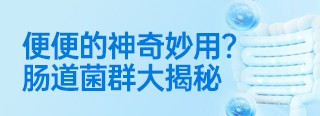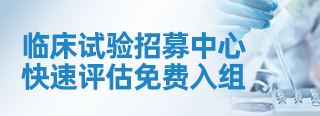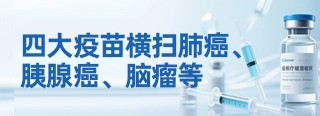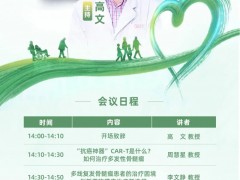前列腺癌 线粒体基因组的重要性值得重视
2017-12-06
阅读量:6730
作者:Kathleen Doheny HealthDay记者星期一,2017年5月1日(HealthDay新闻) - 小剂量阿司匹林的另一点:经常服用“婴儿”阿司匹林似乎可以保护女性免受最常见的<新的研究表明,乳腺癌。一周至少使用三次低剂量阿司匹林与被称为激素受体阳性的癌症的风险降低20%相关,123 HER2 123阴性 - 最常见的123乳腺癌研究资深作者Leslie Bernstein说。她说,这可能是一种“适度”的风险降低,加利福尼亚州杜阿尔特市希望城市癌症中心的教授伯恩斯坦(Bernstein)说,“这可能不如练习,”她补充说,人们可能会坚持阿司匹林治疗而不是运动。然而,这项研究并没有建立直接的因果关系,伯恩斯坦说,建议每天服用阿司匹林降低乳腺癌风险还为时过早。许多成年人已经每天服用小剂量的阿司匹林(81毫克),以降低心脏病发作的风险123。这项由加州癌症预防研究所的克里斯蒂娜·克拉克(Christina Clarke)领导的研究着眼于正在进行的加利福尼亚州教师研究(California Teachers Study)中注册的妇女的使用情况。这项从1995年开始的审判招募了13.3万多名在职和退休的女教师,行政人员和其他公立学校的专业人员。在2005年,超过57,000名参与者回答了有关他们使用阿司匹林和其他药物,癌症的使用,激素治疗,酒精使用,运动, 身高和体重。到2013年,近1,500名患者发展为浸润性乳腺癌。总体而言,定期使用阿司匹林的婴儿降低了乳腺癌的风险这项研究说,6%。但研究人员说,更重要的发现是开发HR阳性/ HER2阴性癌症的风险降低。研究人员发现与使用低剂量阿司匹林有一定的联系,但与常规剂量的阿司匹林或其他非甾体类抗炎药如布洛芬或对乙酰氨基酚没有联系。为什么高剂量的阿司匹林也不能保护?作者认为,规律剂量的阿司匹林更可能偶尔服用疼痛头痛 123,而他们认为服用小剂量阿司匹林的妇女正在这样做,保护心脏。研究人员只能推测,为什么婴儿阿司匹林似乎降低了患乳腺癌的风险。伯恩斯坦说:“阿司匹林不仅能降低炎症123,而且是温和的芳香化酶抑制剂。芳香酶抑制剂药物用于治疗绝经期妇女中的激素受体阳性乳腺癌,因为它们减少血液中循环的雌激素123的量,并且雌激素促进肿瘤。另一位研究人员称赞这项研究。堪萨斯大学医学中心血液学和肿瘤学教授Sushanta Banerjee说:“这真的是非常令人兴奋的工作。在他的研究中,局限于实验室和动物,“我们发现阿司匹林有能力摧毁可能导致乳腺癌的肿瘤起始细胞。”在最近的一次癌症会议上提交的一项研究中,他的研究小组报告说,阿司匹林可能会阻止新血管形成并“滋养”癌症。然而,他同意现在提出服用小剂量阿司匹林降低乳腺癌风险还言之过早。如果有更多的研究证实婴儿阿司匹林和预防乳腺癌之间的联系,伯恩斯坦说低剂量阿司匹林也可能有助于预防复发。这项研究在5月1日在线发表在乳腺癌研究杂志上。它由美国国家癌症研究所和加州乳腺癌研究基金资助。
By Kathleen Doheny HealthDay Reporter MONDAY, May 1, 2017 (HealthDay News) -- Score yet another point for low-dose aspirin: Regularly taking "baby" aspirin appears to protect women from the most common type of breast cancer, new research suggests. Use of low-dose aspirin at least three times a week was linked to a 20 percent risk reduction for cancers known as hormone-receptor positive, HER2 negative -- the most common breast cancer subtype, said study senior author Leslie Bernstein. That's a "moderate" reduction in risk, said Bernstein, a professor at the City of Hope Cancer Center in Duarte, Calif. It's "maybe not as good as exercise," she said, but she added that more people might adhere to an aspirin regimen than an exercise routine. However, the study doesn't establish a direct cause-and-effect relationship, and Bernstein said it's too early to recommend taking daily aspirin for breast-cancer risk reduction. Many adults already take low-dose aspirin (81 milligrams) daily to lower their risk of heart attack. This study -- led by Christina Clarke, who was with the Cancer Prevention Institute of California -- looked at the medication use of women enrolled in the ongoing California Teachers Study. That trial, begun in 1995, recruited more than 133,000 active and retired women teachers, administrators and other public school professionals. In 2005, more than 57,000 participants answered questions about their use of aspirin and other medications, family history of cancer, use of hormone therapy, alcohol use, exercise, height and weight. By 2013, nearly 1,500 had developed invasive breast cancer. Overall, regular baby aspirin use reduced the risk of breast cancer 16 percent, the study says. But the more significant finding was the risk reduction for developing HR-positive/HER2-negative cancer, the researchers said. The researchers found a protective link with use of low-dose aspirin, but not with regular-dose aspirin or other non-steroidal anti-inflammatory drugs such as ibuprofen or acetaminophen. Why wouldn't higher-dose aspirin also be protective? Regular-dose aspirin is more likely to be taken sporadically for pain such as headaches, the authors believe, while they think that women taking baby aspirin were doing so on a regular basis for heart protection.
By Kathleen Doheny HealthDay Reporter MONDAY, May 1, 2017 (HealthDay News) -- Score yet another point for low-dose aspirin: Regularly taking "baby" aspirin appears to protect women from the most common type of breast cancer, new research suggests. Use of low-dose aspirin at least three times a week was linked to a 20 percent risk reduction for cancers known as hormone-receptor positive, HER2 negative -- the most common breast cancer subtype, said study senior author Leslie Bernstein. That's a "moderate" reduction in risk, said Bernstein, a professor at the City of Hope Cancer Center in Duarte, Calif. It's "maybe not as good as exercise," she said, but she added that more people might adhere to an aspirin regimen than an exercise routine. However, the study doesn't establish a direct cause-and-effect relationship, and Bernstein said it's too early to recommend taking daily aspirin for breast-cancer risk reduction. Many adults already take low-dose aspirin (81 milligrams) daily to lower their risk of heart attack. This study -- led by Christina Clarke, who was with the Cancer Prevention Institute of California -- looked at the medication use of women enrolled in the ongoing California Teachers Study. That trial, begun in 1995, recruited more than 133,000 active and retired women teachers, administrators and other public school professionals. In 2005, more than 57,000 participants answered questions about their use of aspirin and other medications, family history of cancer, use of hormone therapy, alcohol use, exercise, height and weight. By 2013, nearly 1,500 had developed invasive breast cancer. Overall, regular baby aspirin use reduced the risk of breast cancer 16 percent, the study says. But the more significant finding was the risk reduction for developing HR-positive/HER2-negative cancer, the researchers said. The researchers found a protective link with use of low-dose aspirin, but not with regular-dose aspirin or other non-steroidal anti-inflammatory drugs such as ibuprofen or acetaminophen. Why wouldn't higher-dose aspirin also be protective? Regular-dose aspirin is more likely to be taken sporadically for pain such as headaches, the authors believe, while they think that women taking baby aspirin were doing so on a regular basis for heart protection.
Continued
The researchers can only speculate as to why the baby aspirin appears to reduce risk of breast cancer. "Aspirin not only reduces inflammation, but it's a mild aromatase inhibitor," Bernstein said. Aromatase inhibitor drugs are used to treat hormone-receptor positive breast cancer in women past menopause, since they reduce the amount of estrogen circulating in the blood, and the estrogen fuels the tumor. Another researcher praised the study. "This is really very exciting work," said Sushanta Banerjee, a professor of hematology and oncology at the University of Kansas Medical Center. In his research, confined to the lab and animals, "we found that aspirin has the capability to destroy the tumor-initiating cells that can lead to breast cancer." In a study presented at a recent cancer meeting, his team reported that aspirin may prevent new blood vessels from forming and "feeding" the cancer. Yet, he agreed it's too soon to suggest taking baby aspirin to reduce breast cancer risk. If more study bears out the link between baby aspirin and breast cancer prevention, Bernstein said low-dose aspirin may also help prevent recurrence. The study was published online May 1 in the Breast Cancer Research journal. It was funded by the U.S. National Cancer Institute and the California Breast Cancer Research Fund.https://www.webmd.com/breast-cancer/news/20170501/low-dose-aspirin-may-lower-risk-for-common-breast-cancer-by-20-percent
紧急通知!如果您有相关基因靶点突变,例如有
EGFR/ALK/NTRK/HER2/claudin18.2/等靶点突变,
请速联系我们,为您申请临床新药,获取营养补助等
1. 添加医学顾问微信,扫描下方二维码
2. 备注【癌种】


郑重声明:本网站新闻资讯、文章、研究数据、治疗案例均来自于国内外医学论文,所涉及到的新药、新技术有可能还处于临床研究阶段,患者不能作为治疗疾病的依据。癌症治疗目前尚无治愈手段,患者需要在医生的指导下,在医院接受正规治疗或参加新药新技术临床试验。


治疗目前有困惑?
医学顾问 免费为您解答

本网站不提供药品销售,本网站只为患者提供疾病资讯服务和医生咨询服务,任何关于疾病的咨询建议均为参考意见
您即将跳转至Indianmed 官方网站。
Indianmed 跨境在线药店将为您提供药品咨询及购买服务。
临床新药招募
更多>-
【细胞疗法】YK1101 细胞注射液用于治疗 HLA-A*11:01 阳性,表达 MAGE-A4 的晚期 实体瘤Ⅰ期临床研究
适合患者:滑膜肉瘤 尿路上皮癌 头颈部肿瘤(非鼻咽癌) 肺鳞癌 卵巢癌
-
华夏英泰GPC3 STAR-T临床试验,GPC3 START细胞治疗晚期实体瘤安全性与有效性的I期临床试验
适合患者:晚期实体瘤
-
恒瑞源正HRYZ-T101临床试验,HRYZ-T101注射液治疗HPV18阳性恶性实体瘤的I期开放临床试验
适合患者:HPV18阳性恶性实体瘤
-
天科雅TC-N201临床试验,TC-N201注射液治疗HLA-A2表达合并NY-ESO-1阳性的标准治疗失败的复发或者转移性实体瘤的I期临床试验
适合患者:HLA-A2表达合并NY-ESO-1阳性的标准治疗失败的复发或者转移性实体瘤
-
蓝马医疗LM103临床试验,LM103注射液治疗晚期实体瘤安全性、耐受性、免疫反应和初步疗效的I期临床试验
适合患者:经组织学或细胞学证实的晚期实体瘤患者
-
正大天晴TQB2103临床试验,评估注射用TQB2103治疗晚期恶性肿瘤安全性、耐受性、药代动力学和初步有效性的I期临床试验
适合患者:Claudin18.2表达阳性的晚期恶性肿瘤
-
一项评估 GFH375治疗KRAS G12D 突变实体瘤患者的 // 期研究
适合患者:KRAS G12D 突变实体瘤
点击在线申请


































 首页
首页 咨询
咨询 方舟新药
方舟新药 营养商城
营养商城